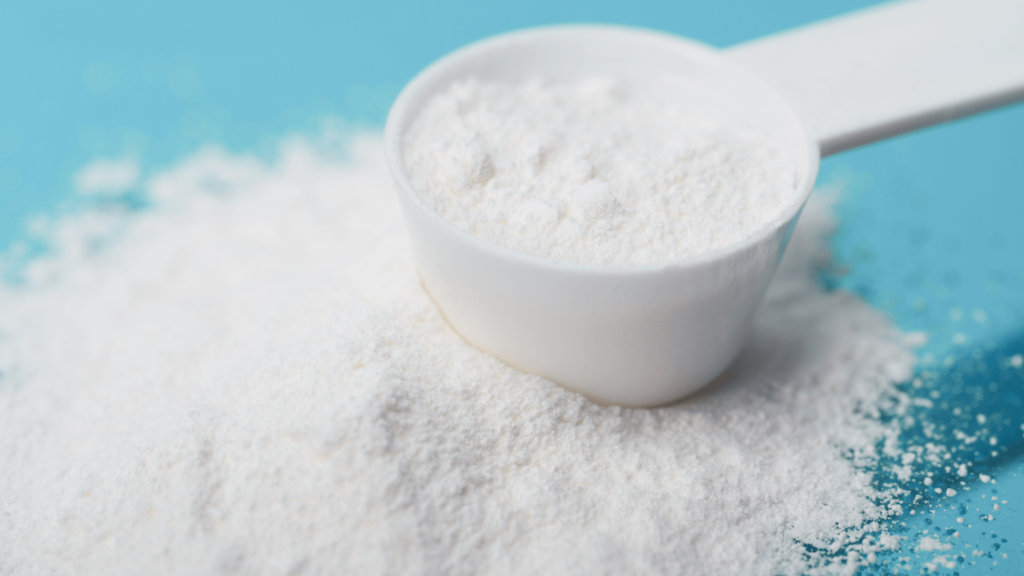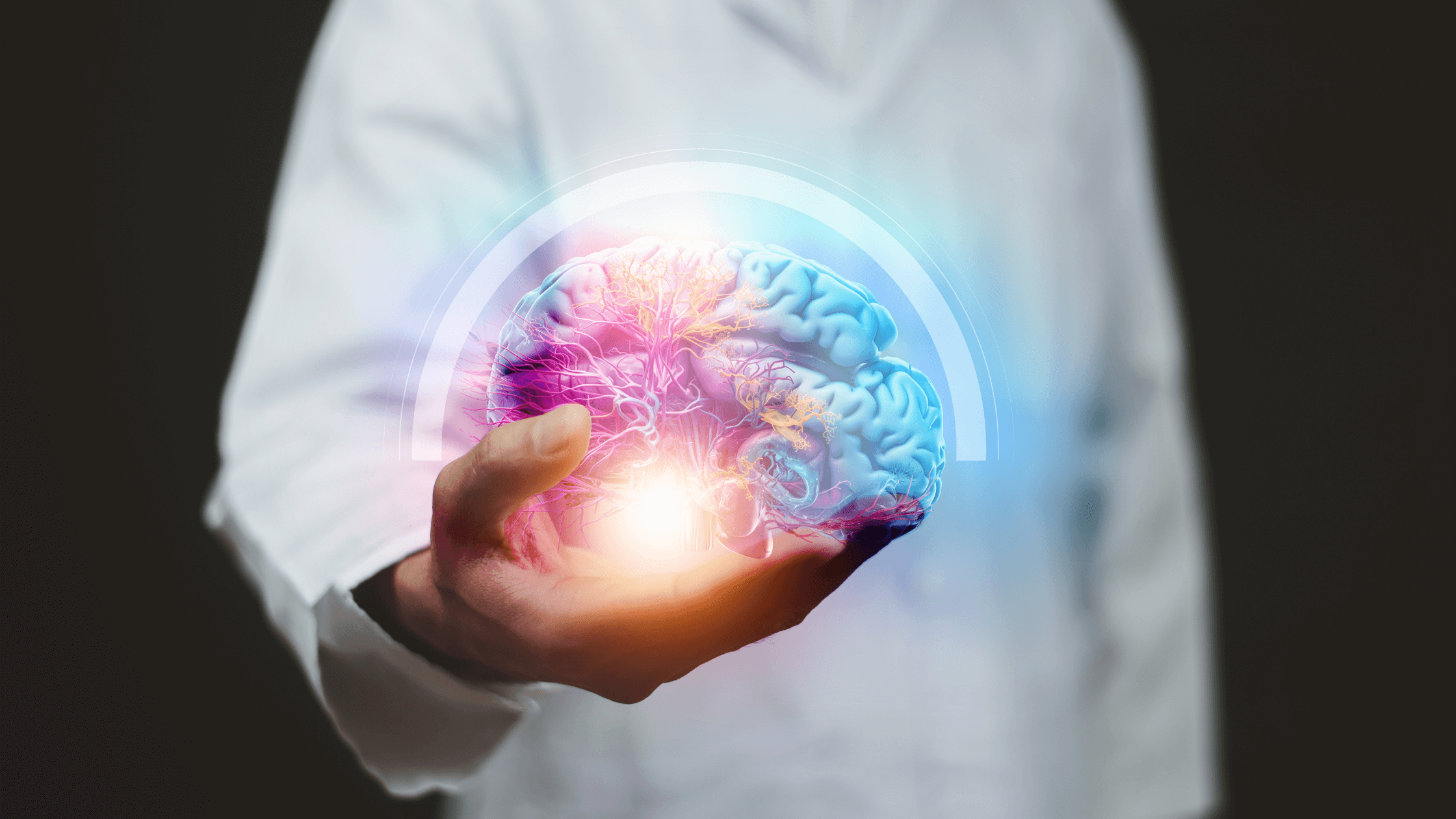If you’ve ever struggled to remember where you put your keys, dealt with depression, or felt like your mind was slow and foggy, you’ve felt the effects of poor brain function. A healthy diet and proper supplementation—omega-3s, magnesium, choline, and B vitamins—are essential for building a healthy brain. However, challenging your brain and incorporating vigorous exercise into your weekly routine can also support brain health and stave off cognitive decline.
Why brain health matters
Keeping your brain sharp and healthy is crucial at all ages and stages of life, but maintaining healthy cognitive function is especially important in the trades, where one wrong move can mean a painful accident or fatal injury.
Support your brain with supplements, exercise, and lifestyle changes to sharpen your cognitive abilities. This can improve your memory, reduce the risk of age-related diseases like Alzheimer’s and dementia, and even enhance your logic and reasoning skills.
Neurogenesis: The path to a healthier brain
Contrary to popular opinion, it is possible to grow your brain. Neurogenesis is a process most commonly seen in childhood, during which the brain forms new cells called neurons.
For years, neurogenesis was thought to stop entirely during adolescence. The number of new neurons created in a seven-year-old’s brain is 23 times fewer than in a one-year-old’s, for example, and at age 13, there are five times fewer new neurons than at age seven. Recent research, however, has shown that neurogenesis may be able to restart in adults under the right conditions.
In one animal research study, neuroscientists discovered that aerobic exercise caused neurogenesis in mice. For the best chance of replicating these results in your brain, they recommend engaging in 120-150 minutes of moderate-intensity exercise each week. Similarly, dietary choices also play a role in neurogenesis, with studies finding that the restriction or intake of certain foods can influence adult hippocampal neurogenesis.
Setting your brain up for success with supplements
Specific vitamins, minerals, and nutrients contribute to a healthy brain. If your diet lacks these elements, supplements can help cover your bases and fill in the gaps.
Omega-3s

Approximately 20% of the brain’s dry mass and over 30% of all fatty acids in the nervous system are polyunsaturated fats. A vast amount of evidence shows that maintaining adequate levels of omega-3 fatty acids can help support brain health and even reduce the symptoms of several disorders.
Research has shown that supplementing with marine-based sources of omega-3 (like fish or algae oil) can reduce ADHD symptoms in children, reduce “anger, anxiety, and depressive states” in teenagers, and improve symptoms of major depressive disorder and treatment-resistant depression in adults.
Studies also suggest that supplementing with marine omega-3 can increase the volume of the hippocampus—an area of the brain associated with learning and memory—and improve your ability to use logic to understand complex concepts.
Pro tip: Algae oil and cod liver oil (CLO) provide the rich benefits of omega-3 fats without the risky side effects of conventional fish oil supplements. As a bonus, CLO even contains vitamins A and D.
B vitamins
This group of vitamins contains seven distinct forms, and each one is crucial to supporting brain health in a different way.
- B1 (thiamine) helps break down nutrients for energy sources.
- B2 (riboflavin) is antioxidant and anti-inflammatory, helps break down fats, and supports cell growth.
- B3 (niacin), in its active form, can extend the lifespan of brain cells and protect them from stress and injury.
- B5 (pantothenic acid) gets converted to coenzyme A, helps make energy, and produces adenosine triphosphate (ATP), a molecule that provides energy to your cells. Your brain uses 20% of your body’s energy, so this vitamin is particularly important.
- B6 helps your body produce mood-boosting hormone serotonin and melatonin, which helps govern the sleep-wake cycle.
- B9 (folate) assists in creating neurotransmitters, as well as reducing fatigue and irritability.
- B12 can prevent mood disorders, dementia, and Alzheimer’s Disease.
Magnesium
Magnesium is one of the body’s most abundant minerals, playing a key role in mood, muscle function, and brain health. Some studies have shown that magnesium can also prevent brain volume loss, which reduces brain age, improves brain function, and protects against dementia.
Magnesium comes in many forms; magnesium glycinate is very well-absorbed, and magnesium threonate has been the subject of some animal studies that indicate it may be able to increase magnesium ions in the brain and cognitive function.
Creatine

Creatine is a supplement favored by athletes for its effect on muscle recovery, but taking creatine supplements can also improve your brain health. Creatine can significantly improve memory, especially in older adults, and increase cognitive abilities such as intelligence and reasoning.
Choline
The Institute of Medicine only recognized choline as a required nutrient in 1998, but it is associated with several critical processes, including DNA synthesis, cell structure formation, and metabolism. Choline can also affect brain health because it helps produce the neurotransmitter acetylcholine, which manages memory, attention, mood, and intelligence. Its role in neural tube development and brain health is why sufficient choline intake is critical during pregnancy.
Lifestyle brain boosters
Taking supplements can be an effective way to build a healthy brain, but many aspects of your lifestyle can also contribute to brain health.
Challenge your brain

It’s easy to fall into a rut as you get older—eating the same things, going to the same places, watching the same shows, and hanging out with the same people. To keep your brain strong, you have to challenge it like any other muscle.
Try making simple shifts like using your non-dominant hand to brush your teeth, standing on one foot while washing dishes, or even taking a different route to work. You can also do brain-boosting activities like Sudoku, Wordle, or crossword puzzles. Learn new things, try new hobbies, and continue to challenge your brain.
Stay active
The brain and the body are closely connected—a healthy body also contributes to a healthy brain. A robust body of evidence links exercise to improved learning and memory, reduced depression, and better overall brain function. Plus, physical exercise is one of the easiest ways to stimulate neurogenesis. At least 120 minutes of moderate weekly exercise can help your brain stay strong and sharp.
Sleep well
It may not seem like much happens when you spend a night between the sheets, but sleep is crucial to building a robust and healthy brain. Sleep can help your brain remove toxins, regulate metabolism, and improve memory. It can also perform “housekeeping duties,” reorganizing itself and recharging for another day. Ensuring you get enough sleep is crucial to maintaining a healthy brain, especially when working long hours in a challenging environment.
Cultivate relationships

Social connections are a surprising source of brain health. It’s common to lose friends as you move beyond your teens and twenties, and life gets filled with work, kids, and romantic relationships. Making sure you prioritize your social relationships, however, can help build a stronger brain. Socializing can strengthen your brain’s neural networks and prevent cognitive decline. Studies show that if you have strong social ties, you’re up to 40% less likely to experience dementia compared to those who live a lonely, solitary life.
Brain health bottom line
Brain health is much less visible than physical health—you don’t notice cognitive decline like you see pounds on the scale or inches on your waistline. Out of sight shouldn’t mean out of mind, however. Support your brain with supplements like magnesium and omega-3s and lifestyle changes to keep your mind strong, active, and healthy for years to come.



2 comments